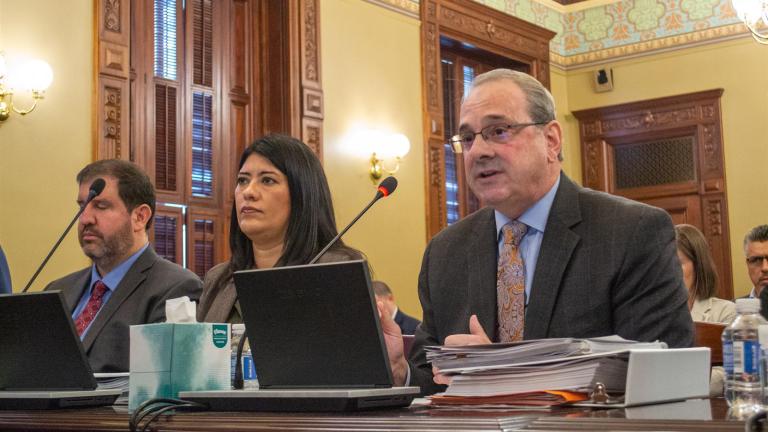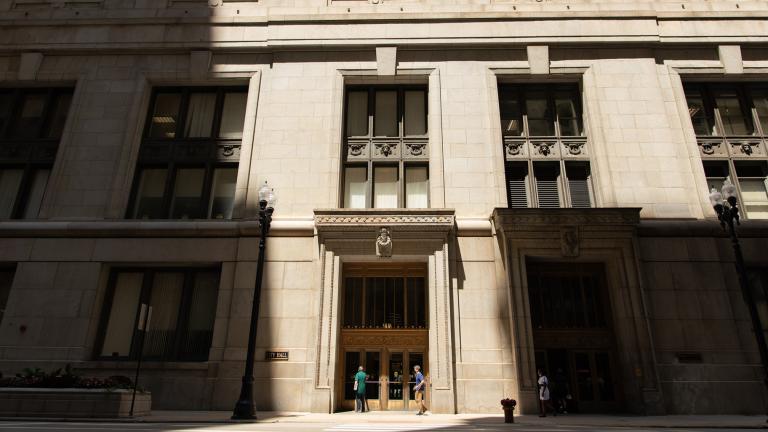On the last day of the veto session, a new pension proposal aimed at mending the state's $96 billion unfunded liability was rolled out. Rep. Elaine Nekritz and Rep. Chris Nybo join us to talk about the new pension reform bill in Springfield on Chicago Tonight at 7:00 pm.
The new bill spearheaded by Rep. Elaine Nekritz and Rep. Daniel Biss is trying to set the framework for pension reform, before the lame-duck session ends and the new legislature is sworn in. Illinois’ $96 billion unfunded pension liability is the worst in the nation, with a 39% funded ration (80% is considered healthy). The legislature’s failure to take action will most likely result in lowering Illinois’ credit rating. Here’s a break-down of key points in the bill.
COLA (Cost of Living Adjustments)
-Cost of living adjustments would apply only to the first $25,000 of someone’s pension if the retiree does not receive Social Security, and $20,000 if they do. The COLA adjustments wouldn’t take effect until a pensioner reaches age 67 or five years after retirement, whichever comes first. This would apply to current retirees.
Retirement Age
-Retirement age increases would not apply to employees age 45 and older.
-One year is added to the current retirement age for employees between 40 – 44 years old.
-Employees between 35 -39 add three years to current retirement ages.
-Employees 34 and younger add five years to current retirement ages.
Employee Contributions
Tier I employees (employees hired after January 1, 2011)
-Pension contributions would go up by 2% points, phased in over two fiscal years.
Tier II (employees hired after January 1, 2011)
-New Teachers’ Retirement System and State Universities Retirement System employees hired after July 1, 2013 join a cash balance plan.
Existing Tier II (employees hired after January 1, 2011 and before July 1, 2013)
-Employees have the option to join a cash balance plan, essentially a hybrid between a traditional pension and 401(k).
State Contributions
-Contributions set on a 30-year funding plan with 100% funding goal by 2043.
-Unions are allowed to take court action to force state, school districts and universities to pay their required pension contributions.
-Once Illinois pension bonds mature, revenue that had been used for debt service payment would be used to pay off unfunded pension liabilities.
Pensionable Salary
-The salary that counts toward a pension would be capped at the higher of the Social Security wage base or the employee’s salary when the bill becomes law.
Cost Shift
-School districts, community colleges and universities would take over the state’s normal pension cost at a rate of .5% payroll per year for normal costs incurred after July 1, 2013.
Consideration
-The new bill doesn’t offer “consideration,” meaning employees don’t have to choose between retirement health benefits and pension benefits.







